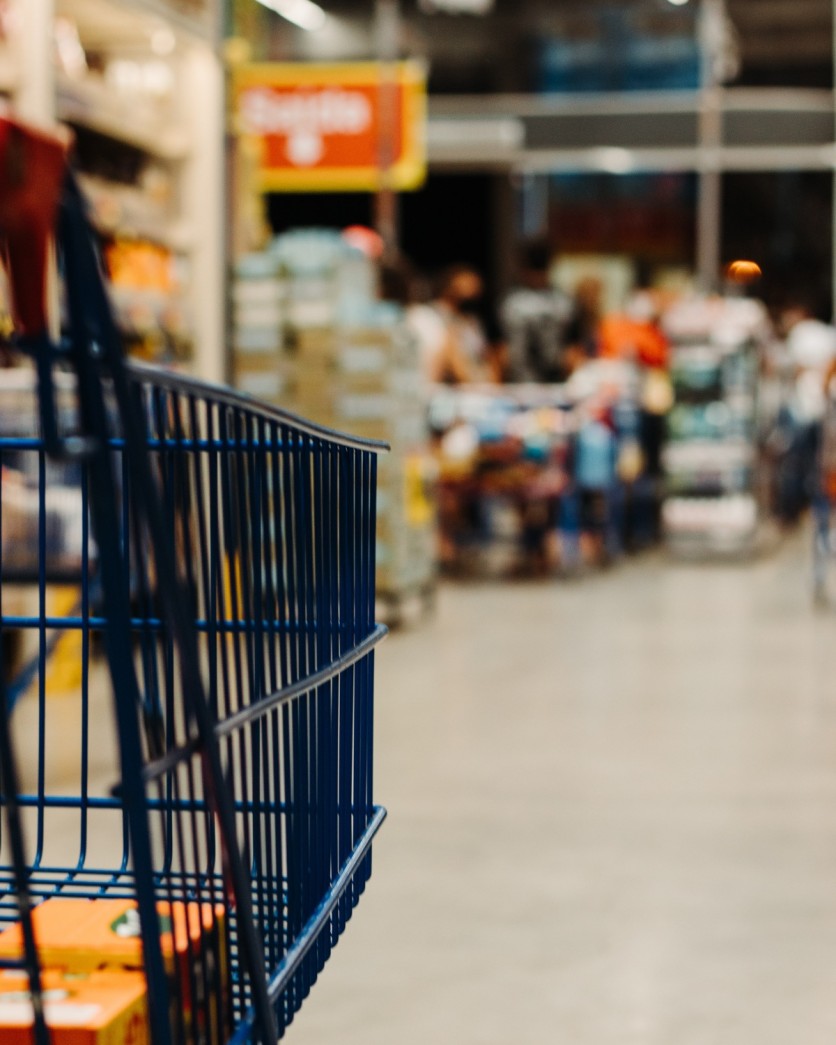
Tel Aviv-based startup Shopic just announced a rollout of 2,000 smart cart devices across 30 stores of Israel's largest supermarket chain, Shufersal. This announcement arrives on the heels of successful Shopic pilot programs in North and South America and in Israel, including a recently launched pilot at Wegmans branches in Rochester and Amherst, New York.
The Shopic-Shufersal rollout is the widest commercial deployment of smart carts to have been reported to date. It is already in full swing, and will be completed by the end of March 2023.
Shopic's devices are powered by computer vision and artificial intelligence (AI) algorithms that are reinventing the in-store grocery shopping experience. Developments and rollouts in AI have hogged media headlines recently, from AI-powered content creation to the very nature of web searches changing.
The fact is, it's been years since AI first transitioned from a promising business process upgrade to a reality accessible to businesses across various verticals. Industrial companies and financial institutions were among the first organizations to leverage AI in their workflows that have now reached consumer industries.
The rise of AI-powered shopping carts
While grocery smart carts have been in development for several years now, the Shopic-Shufersal announcement is the closest that the industry has seen to a full, commercial-scale rollout.
Other reported deployments have included Tracxpoint's pilot with Italian chain Conad; A2Z Cust2Mate's pilots with Evergreen and Yochananof; Caper's pilot with Wakefern and Sobeys; and Veeve's pilots with Kroger and Albertsons.
Even media coverage around Amazon Dash Cart, the ecommerce tech giant's self-developed smart cart, currently in use at some Amazon Fresh and Whole Foods locations, has been extremely light on details, suggesting that Amazon has not yet committed to a full commercial rollout of its devices.
As more consumer devices have acquired the "smart" tag, grocery chains are finally starting to adopt digitized shopping carts. An integral part of the in-store experience, shopping carts have always been a cost center. With opportunities to monetize directly with in-retail advertising media and indirectly via data insights, grocery smart carts have the potential to mirror the online shopping experience in brick-and-mortar settings.
They also help alleviate one of the most hated aspects of supermarket shopping, the lines at checkout, by allowing shoppers to self-checkout.
Upgrading the shopper's experience
Upgrading analog carts to smart technology-embedded ones is often a costly proposition. Aside from decommissioning an entire fleet of older carts, supermarkets have faced the decision whether or not to invest in expensive smart cart hardware, network infrastructure and freeing up additional storage space. These measures considerably increase operating expenses in a low-margin business.
From the grocer's perspective, onboarding Shopic's solution involves less risk. All that it takes is "AI training" for identifying in-store items and any new items added to inventory. Once this process is complete, the solution is ready for deployment - all it needs is a charging wall.
Shopic's solution isn't a complete cart but rather a device that clips onto ordinary grocery carts. Shoppers take a Shopic device from the charging wall and clip it onto their grocery cart. Shopic's clip-on device provides shoppers a running tally of their cart total as they go, along with recommendations for related products, and easier access to help from store staff.
The system also provides store owners with anonymized insights into their customers, the effectiveness of their store layouts, and trending product preferences. All this data can be fed into analytics programs to give better insight into purchasing trends, inventory levels, and merchandising performance.
In Shopic's pilot program with Shufersal, the partners reported high levels of consumer adoption and satisfaction. According to Shopic, basket sizes using their product were 78% larger, and monthly spending increased by 8%. Customers also completed their checkout in less than a minute, compared to 3.5 minutes when using self-checkout lanes and 9 minutes when using cashier lanes.
The AI revolution gathers steam
AI is now a part of our lives, and for the most part, it seems so far that we're better off for it. From a retail perspective, AI-powered shopping carts enable grocers to offer faster checkout and personalized recommendations for consumers, while gaining better purchasing, inventory and store layout analytics. Shopic's large-scale deployment at Shufersal certainly suggests that in the years ahead, we're likely to see smart carts finally going mainstream worldwide.




